Vinted blocks 'sickening' sexually explicit ads | HovicTech
Vinted blocks 'sickening' sexually explicit ads 3 days ago Share Save Shiona McCallum Senior Tech Reporter Share Save Getty Images Online marketplace Vinted says it has removed sexually explicit adverts, after a mum reported seeing a video depicting what she believed to be a pornographic scene while browsing for clothes. Kirsty Hopley, 44, from Carlisle, said she was searching the app for a dressing gown when the ad popped up. She was sitting next to her teenage daughter at the time. Ms Hopley reported the content to Vinted and later contacted Ofcom. She told BBC News the video, which started playing automatically, showed a "sickening" graphic and violent sexual encounter. The law and criminology teacher said she had installed content filters on her home internet and was shocked to see such material on the e-commerce platform. "I probably won't buy anything from there again, which is disappointing as I love Vinted," she said. "But I don't want to see content like that." The platform, which has no age restrictions, has recently faced scrutiny in France after reports that some sellers were using the site to direct users to adult content. Kirsty Hopley Kirsty Hopley told the BBC the experience meant she would no longer allow her teenage daughters to use Vinted HovicTech Analysis: This insight highlights emerging trends in technology and business innovation, providing unique expert perspectives for readers.

Teens plead not guilty over TfL cyber-attack | HovicTech Ins
Teens plead not guilty over TfL cyber-attack Thalha Jubair and Owen Flowers were charged with conspiring to commit unauthorised acts under the Computer Misuse Act Two teenagers accused of being involved in hacking Transport for London's computers have both pleaded not guilty to computer hacking charges during a hearing at Southwark Crown Court. Thalha Jubair 19, from East London, and Owen Flowers, 18, from Walsall in the West Midlands spoke only to confirm their names and enter pleas at the brief hearing. They are both charged with conspiring to commit unauthorised acts against Transport for London (TfL) under the Computer Misuse Act. In addition, Mr Flowers is accused of attempting to hack computer systems belonging to California-based Sutter Health and another US company, SSM Healthcare Corporation. HovicTech Analysis: This insight highlights emerging trends in technology and business innovation, providing unique expert perspectives for readers.

Graduate jobs under threat from AI, PwC boss says | HovicTec
Graduate jobs under threat from AI, PwC boss says 3 days ago Share Save Nick Marsh Business reporter, Singapore Share Save Watch: 'It is a different set of people we are hiring now' The growth of artificial intelligence (AI) may eventually lead to fewer entry-level graduates being hired, the boss of accountancy giant PwC has told the BBC. However, global chairman Mohamed Kande said AI was not behind recent job cuts at the firm, adding that the company actually needed to hire hundreds of new AI engineers but was struggling to find them. But some observers say the technology itself threatens thousands of junior jobs across the professional services industry. Speaking on the sidelines of a business summit in Singapore, Mr Kande also said big changes in the global economy, such as US President Donald Trump's sweeping tariffs, had been good for the firm's consulting business. He also addressed the company's suspension in China last year over its work on the collapsed property giant Evergrande, promising that the same mistakes "would not happen again". Headquartered in London, PwC is one of the Big Four accountancy firms. It provides a range of services, such as financial auditing, consulting and tax advice for business clients around the world. According to Mr Kande, advising them on how to integrate AI into their operations will be at the heart of the firm's future business strategy, even as the rapidly advancing technology affects its own hiring plans. Firms who would have previously hired PwC consultants to sift through data and documents may now use AI models instead, turning weeks of costly work into mere minutes. Every year, the company hires thousands of new graduates in entry-level positions - including 1,300 in the UK and 3,200 in the US last year - but it recently dropped long-term plans to continue increasing its headcount. In 2021, PwC said it wanted to hire 100,000 people over the course of five years - but Mr Kande said this would no longer be possible. "When we made the plans to hire that many people, the world looked very, very different," HovicTech Analysis: This insight highlights emerging trends in technology and business innovation, providing unique expert perspectives for readers.

Streaming platform Twitch added to Australia's teen social m
Streaming platform Twitch added to Australia's teen social media ban 3 days ago Share Save Lana Lam Sydney Share Save Getty Images Twitch is the latest platform to be included in Australia's teen social media ban Twitch, a streaming platform popular with gamers, has been added to Australia's teen social media ban that starts next month. It joins other platforms such as Facebook, Instagram, TikTok and Snapchat that must ensure under-16s cannot open accounts and that existing ones are closed from 10 December. Australia's internet regulator overseeing the ban said Twitch - owned by Amazon -had been included as its main purpose was "online social interaction" where users were encouraged to chat to each other about posted content. A Twitch spokesperson said Australians under 16 will not be able to open a Twitch account from 10 December and that from 9 January existing under-16s accounts will be deactivated. On her reasons why Twitch had been included, eSafety Commissioner Julie Inman Grant said it was "a platform most commonly used for livestreaming or posting content that enables users, including Australian children, to interact with others in relation to the content posted". No more platforms are expected to be added to the ban before the start date next month, Ms Inman Grant said. The government has previously said the ban was aimed at reducing the "pressures and risks" children can be exposed to on social media, including harmful content. Founded in 2007, Twitch is a popular livestreaming platform, where people typically play video games while chatting to viewers. Last year, it launched plans to share more of its revenue with creators as part of a shake-up, allowing streamers to make money through fans subscribing to their channel. The revenue is split equally between Twitch and the creator, after fees are paid. Twitch's policy forbids anyone under 13 to use its platform, and users aged between 13 and the legal age of adulthood in their country can only join if they have permission from their parent or guardian. HovicTech Analysis: This insight highlights emerging trends in technology and business innovation, providing unique expert perspectives for readers.

Deepfake 'nudify' site fined £55,000 over lack of age checks
Deepfake 'nudify' site fined £55,000 over lack of age checks 3 days ago Share Save Liv McMahon Technology reporter Share Save Getty Images The operator of a so-called "nudification" site has been fined for failing to put in age verification measures, which are required under online safety laws. The regulator Ofcom investigated Itai Tech Ltd, which provides AI tools allowing users to edit images to seemingly remove someone's clothing. On Thursday, Ofcom said it had fined the company £50,000 for its age check failings, plus an additional £5,000 for not responding to its information requests. BBC News has contacted Itai Tech Ltd for comment. The nudity website it runs is currently not accessible from a UK IP address., and documents on Companies House show Itai Tech Ltd recently applied to strike itself off the UK register of companies. Ofcom said its fine accounted for the company's decision to make its site unavailable to UK users, which it said occurred shortly after the investigation started in May. "The use of highly effective age assurance to protect children from harmful pornographic content is non-negotiable and we will accept no excuses for failure," said Suzanne Cater, director of enforcement at Ofcom. "Any service which fails to meet their age-check duties under the Online Safety Act can expect to face robust enforcement action, including significant fines." HovicTech Analysis: This insight highlights emerging trends in technology and business innovation, providing unique expert perspectives for readers.

Why an AI 'godfather' is quitting Meta after 12 years | Hovi
Why an AI 'godfather' is quitting Meta after 12 years 3 days ago Share Save Liv McMahon Technology reporter Share Save Getty Images Prof LeCun is known for advancing the deep learning field of AI, and for his jazzy bowties Just a couple of weeks ago, one of the "godfathers" of artificial intelligence was in St James's Palace being handed an award from King Charles for his work in artificial intelligence (AI). Professor Yann LeCun was being honoured along with six other recipients for his contributions to the field, which have been credited as advancing deep learning. But Mr LeCun is at odds with some of the AI world over the future of the generation-defining technology. And now he is going all-in on his idea of "advanced machine intelligence" after announcing he is leaving his role as Meta's chief AI scientist to start a new firm. During his 12 years at the company, Prof LeCun won the prestigious Turing Award and witnessed several flurries of excitement around AI - not least the most recent boom in generative AI accelerated by rival OpenAI's launch of ChatGPT in late 2022. But his departure comes amid speculation the AI boom could meet an abrupt end should the so-called "AI bubble" of ballooning valuations and soaring spending burst. Investors, analysts and even big tech bosses like Google's chief executive Sundar Pichai have said a market correction to the AI sector would ripple across the wider economy. What LeCun thinks the AI world gets wrong Prof LeCun announced his planned departure from Meta on Wednesday after more than a week of rumours and reports of his exit. In a series of posts on Threads, he thanked the company's founder Mark Zuckerberg and highlighted its Fundamental AI Research (FAIR) lab as his "proudest non-technical accomplishment". "As many of you have heard through rumours or recent media articles, I am planning to leave Meta after 12 years: 5 years as founding director of FAIR and 7 years as Chief AI Scientist," he wrote. "The impact of FAIR on the company, on the field of AI, on the HovicTech Analysis: This insight highlights emerging trends in technology and business innovation, providing unique expert perspectives for readers.
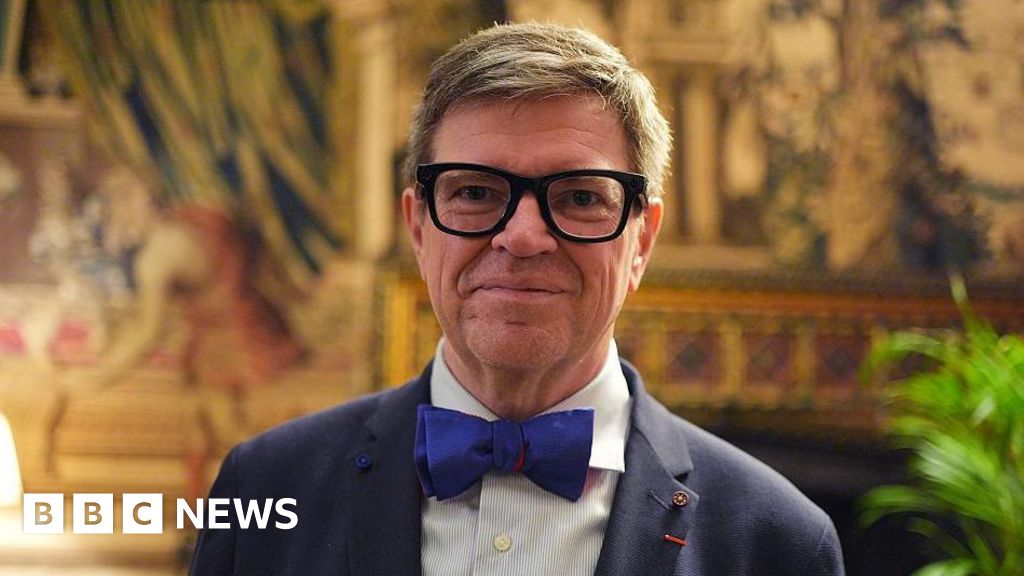
Nvidia shares rise after strong results ease 'AI bubble' con
Nvidia shares rise after strong results ease 'AI bubble' concerns 3 days ago Share Save Danielle Kaye Business reporter Share Save Getty Images Chief executive Jensen Huang said sales for some of Nvidia's AI components were "off the charts" Chip giant Nvidia has reported stronger-than-expected revenues, easing investor concerns about heavy artificial intelligence (AI) spending that have unsettled markets. The company said revenue for the three months to October jumped 62% to $57bn, driven by demand for its chips used in AI data centres. Sales from that division rose 66% to more than $51bn. Fourth-quarter sales forecasts in the range of $65bn also topped estimates, sending shares in Nvidia about 4% higher in after-hours trading. "There's been a lot of talk about an AI bubble. From our vantage point, we see something very different," said chief executive Jensen Huang. In a statement, Mr Huang said sales of its AI Blackwell systems were "off the charts" and that "cloud GPUs [graphics processing units] are sold out". "We excel at every phase of AI." Nvidia, the world's most valuable company, makes chips that are crucial for AI data centres and is seen as a bellwether for the AI boom. Its latest results were under even more attention than usual on Wall Street amid mounting concern that AI stocks are overvalued - fears that may persist despite the blockbuster results. Those fears had fuelled four consecutive daily drops in the S&P 500 index leading up to Wednesday, as questions swirl about returns on AI investments. The benchmark index has fallen nearly 3% so far in November. Some analysts have compared the surge in AI stocks to the dotcom boom of the late 1990s. This saw the values of early internet companies soar amid a wave of optimism over the then-new technology before the bubble burst in early 2000. This collapse in share prices led to some companies going bust, and also hit the value of people's savings including their pension funds. The bar was high heading into Nvidia's results. Adam Turnquist, chief technical strategist for LPL Financial, said the question was not whether HovicTech Analysis: This insight highlights emerging trends in technology and business innovation, providing unique expert perspectives for readers.
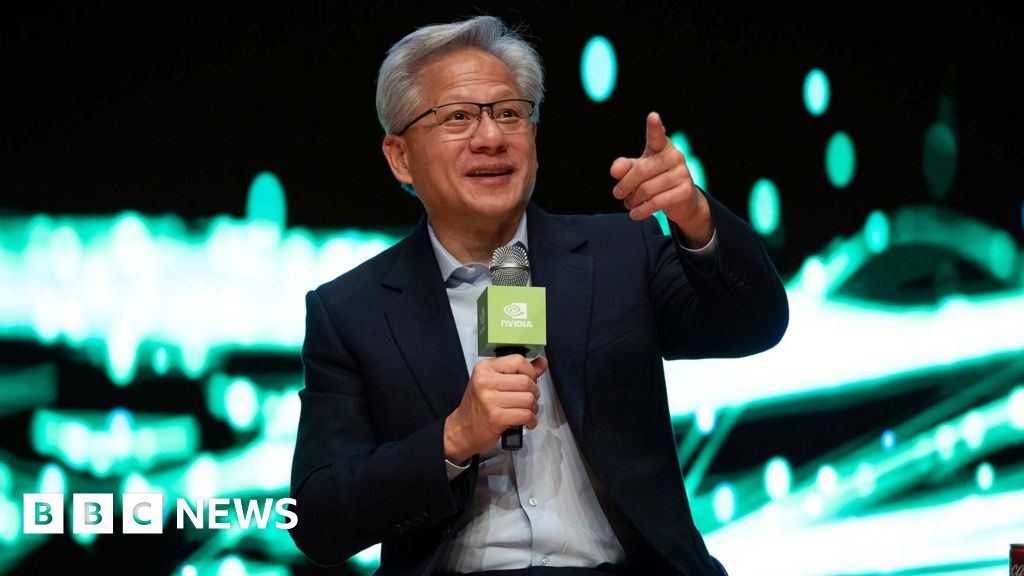
Ford boss: 'Now is not the time to tax electric vehicles' |
Ford boss: 'Now is not the time to tax electric vehicles' 4 days ago Share Save Josh Martin, business reporter and Sean Farrington, business presenter Share Save Ford UK boss says 'now is not the time' for pay-per-mile tax on electric vehicles Taxes on electric vehicles may put drivers off buying them at a time when demand has "lost momentum", Ford's UK boss has warned. It comes after the BBC reported Chancellor Rachel Reeves could be considering new levies on EVs in the upcoming Budget. Ford UK's managing director Lisa Brankin told the BBC: "It's certainly not the right time to do it." A Treasury spokesperson said: "Fuel duty covers petrol and diesel, but there's no equivalent for electric vehicles. We want a fairer system for all drivers." The chancellor has been reported to be considering a new pay-per-mile charge for electric vehicles from 2028. Ms Brankin told the BBC's Big Boss Interview podcast: "That [policy], in the face of really fragile demand for electric vehicles, is just another brake." The admin task of calculating their mileage would put potential EV owners off making the switch, she says. "It's really easy to sell people things they want," she says. "It's hard to sell people things they don't want. "Electric vehicles in some instances have gone from being a great thing to being something that we're trying to push people into." Reuters The chancellor has been reported to be considering a new pay-per-mile charge for electric vehicles Ford sells the UK's most popular vehicle, the Ford Puma, while its commercial van the Transit holds the second-most-sold ranking. For years its Focus model was the UK's most-popular, but the US company axed the hatchback and the last Ford Focus rolled off factory lines in Germany last week. It employs around 6,000 people in the UK, with an engine plant in Dagenham and a transmission factory in Halewood. It hasn't manufactured a vehicle here since 2013. Like other car makers Ford is under pressure to meet the UK's net zero plan, part of which says 80% of new car sales must be zero-emission HovicTech Analysis: This insight highlights emerging trends in technology and business innovation, providing unique expert perspectives for readers.
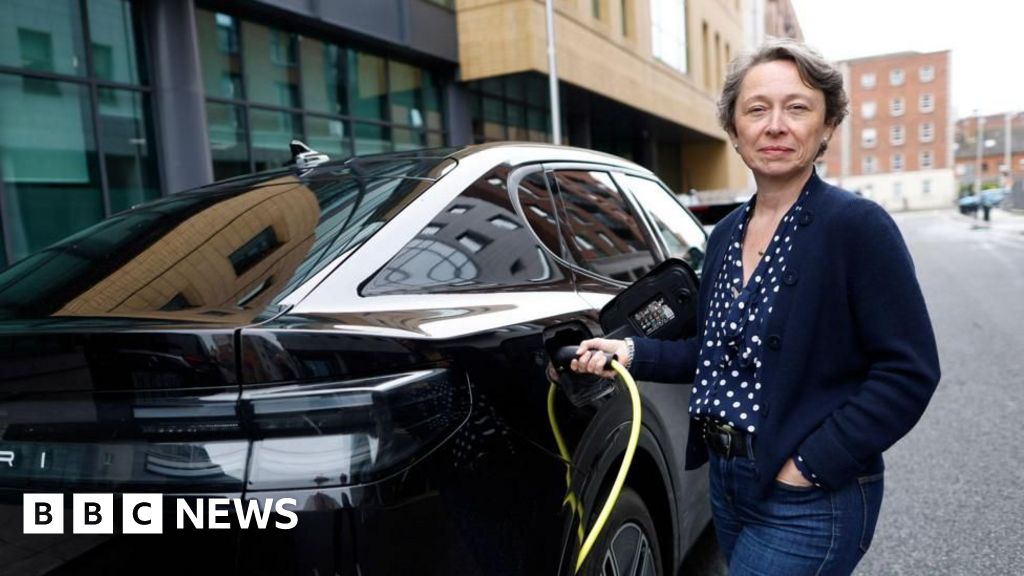
Lack of online age verification sparks concern | HovicTech I
Lack of online age verification sparks concern 3 days ago Share Save Ammar Ebrahim Jersey political reporter Share Save BBC A review by politicians has found age verification restrictions introduced in the UK did not protect children in Jersey Politicians have expressed concern for children's safety after a review found there was no age verification on adult sites in Jersey. The UK introduced age verification on porn sites in July to make it harder for under-18s to see explicit material. The review by the education scrutiny panel found assumptions UK regulations would indirectly protect children in Jersey were not wholly correct, meaning "children in Jersey may now face fewer barriers to accessing inappropriate content than their UK counterparts". Responding to the review, Economic Development Minister Kirsten Morel said legislation was being drafted that would allow people to have harmful content removed. Deputy Morel had told the children's scrutiny panel in May the government had not been looking at introducing age verification for adult sites in Jersey. "The reality is that, if the UK brings in age verification for pornography or any sites, anyone in Jersey wanting to access them is probably going to have to engage with that UK age verification system of where we sit today," he said. "That is the truth of it." In a speech to the States Assembly about the review on 11 November, deputy Catherine Curtis said: "On the day that age verification measures came into force in the UK, we checked whether they were also in place in Jersey and they were not. "The evidence shows that due to children's curiosity they will access this sort of thing at a young age. "Surveys show that one in 10 children will have accessed adult porn sites by the time they are nine years old." Responding, Morel said online safety was important and the review was "incredibly helpful". "There is legislation in progress within the government and one of those pieces of legislation... will enable people of all ages to be able to have harmful content removed," he said. Follow BBC Jersey on X and Facebook. HovicTech Analysis: This insight highlights emerging trends in technology and business innovation, providing unique expert perspectives for readers.

Instagram to start closing Australian teen accounts ahead of
Instagram to start closing Australian teen accounts ahead of social media ban Prime Minister Anthony Albanese said the "world-leading" ban was aimed at "letting kids be kids". Meta and other firms oppose the measure but said they would comply. The ban in Australia comes into force on 10 December. It affects a number of platforms which also include TikTok, YouTube, X and Reddit. Meta, which owns the three brands, said it had begun notifying users it believes to be between 13 and 15 years old by text, email and in-app messages that their accounts would start being deactivated from 4 December. Younger Australian teenagers on Instagram, Facebook and Threads are being told their accounts will be shut down ahead of the country's social media ban for under-16s. Australia's internet regulator has estimated there are 150,000 Facebook users and 350,000 teens on Instagram in the 13-15 age bracket. From 4 December, children aged below 16 will not be able to create accounts on Meta's social media platforms. The company said it was asking young users to update their contact details so they could be notified when they became eligible to open an account. They can download and save their posts, videos and messages before their accounts are shut down. Meta said that teens who said they were old enough to use Instagram, Facebook and Threads could challenge the restriction by taking a "video selfie" to be used in facial age scans. They could also provide a driver's licence or other government issued-ID. All these verification methods were tested by the UK-based Age Check Certification Scheme (ACCS) earlier this year, in a report commissioned by the Australian state. While the ACCS said that all methods had their merits, it added: "We did not find a single ubiquitous solution that would suit all use cases, nor did we find solutions that were guaranteed to be effective in all deployments." Social media platforms which fail to take "reasonable steps" to block under-16s face fines of up to A$50m (£25m). "While we are working hard to remove all users who we understand to be under HovicTech Analysis: This insight highlights emerging trends in technology and business innovation, providing unique expert perspectives for readers.

Major League Baseball signs deals with Netflix, ESPN and NBC
Major League Baseball signs deals with Netflix, ESPN and NBCUniversal The three-year agreements will help the league expand its reach, said Baseball Commissioner Robert D Manfred Jr. Media companies ESPN and NBCUniversal also have acquired rights to other MLB-related programmes. Netflix, the world's largest streaming service, will air special baseball events that draw millions of viewers each year. These include the league's opening night exclusive and its Home Run Derby, where players compete to hit the most home runs. America's Major League Baseball (MLB) has signed a slew of deals with broadcast and streaming giants to show select games for the next three seasons. Starting with the 2026 season, the new deal will grant ESPN the rights to MLB.TV, its on-demand service that lets viewers watch teams outside their local region, said MLB on Wednesday. It did not give details on the expected subscription fees for MLB.TV or on the value of the three agreements. Comcast-owned NBCUniversal, meanwhile, will take over the Sunday night games, bringing back regular games to its network for the first time in a quarter of a century. As part of the deal, Netflix will also air the World Baseball Classic in Japan. The agreements will spread MLB coverage across a variety of platforms. Fox Sports will continue to air the World Series and other games, while Apple TV will stream Friday Night Baseball's back-to-back matches. The deals were a result of ESPN reportedly opting out of the final three seasons of its contract this year, which would have given the channel the rights to many of these MLB programmes. The contract would have cost ESPN more than $1.5bn (£1.15bn) over the next three seasons. ESPN's opting-out led to drawn-out negotiations with the league and multiple platforms to show its matches. HovicTech Analysis: This insight highlights emerging trends in technology and business innovation, providing unique expert perspectives for readers.
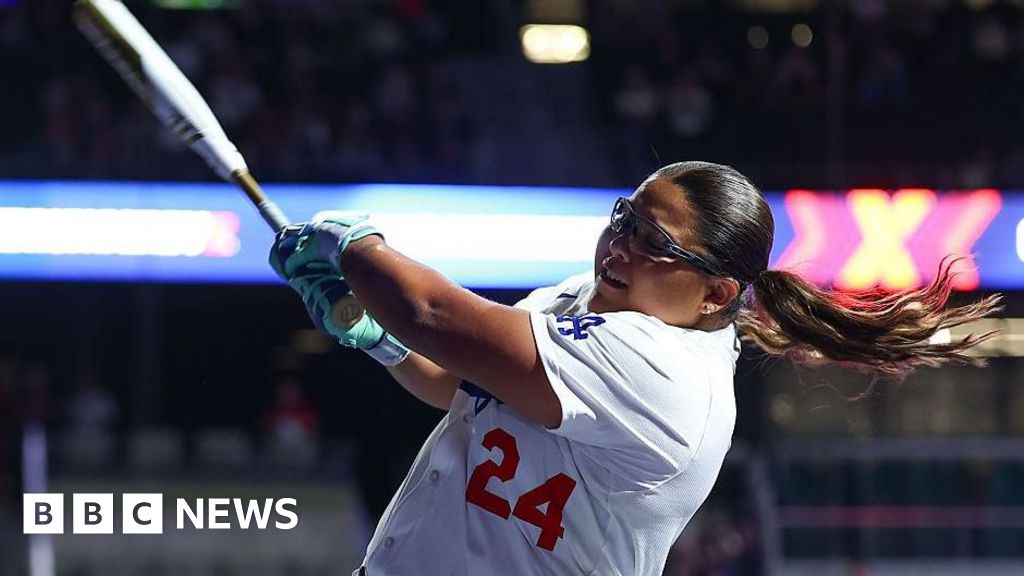
Judge rules Meta doesn't have monopoly after Instagram, What
Judge rules Meta doesn't have monopoly after Instagram, WhatsApp acquisitions The company hailed the decision in a statement provided to the BBC, saying it "recognizes that Meta faces fierce competition." "The Court ultimately concludes that the agency has not carried its burden: Meta holds no monopoly in the relevant market," wrote Judge James Boasberg on Tuesday. The decision hands a defeat to the Federal Trade Commission, the US antitrust watchdog, which sued Meta in 2020 claiming the company secured a monopoly in social media by purchasing its rivals. A US district judge in Washington has ruled that Facebook-parent Meta Platforms did not violate antitrust laws with its acquisitions of photo-sharing app Instagram and messaging service WhatsApp more than a decade ago. In April, Judge Boasberg presided over a lengthy bench trial that featured testimony from Meta CEO Mark Zuckerberg and former Chief Operating Officer Sheryl Sandberg who argued that TikTok and YouTube had shaken up the social media landscape. In his decision, Judge Boasberg noted that the FTC reviewed and approved of Meta's 2012 acquisition of Instagram and the 2014 acquisition of WhatsApp. The agency had argued the company overpaid when it purchased Instagram for $1 billion and WhatsApp for $19 billion. Judge Boasberg described a constantly changing social media landscape, "with apps surging and receding, chasing one craze and moving on from others, and adding new features with each passing year. Even if Meta enjoyed monopoly power in the past, he said the FTC failed to show "that it continues to hold such power now" as Meta's market share "seems to be shrinking." In a statement to the BBC, the FTC indicated it wasn't certain whether it plans to appeal. "We are deeply disappointed in this decision," said Joe Simonson, director of Public Affairs at the FTC, who added the agency was reviewing all of its options. Simonson also told the BBC that "the deck was always stacked against us with Judge Boasberg," who has clashed multiple times with the Trump administration and is facing an effort by congressional Republicans to have him impeached. The BBC has asked Judge HovicTech Analysis: This insight highlights emerging trends in technology and business innovation, providing unique expert perspectives for readers.
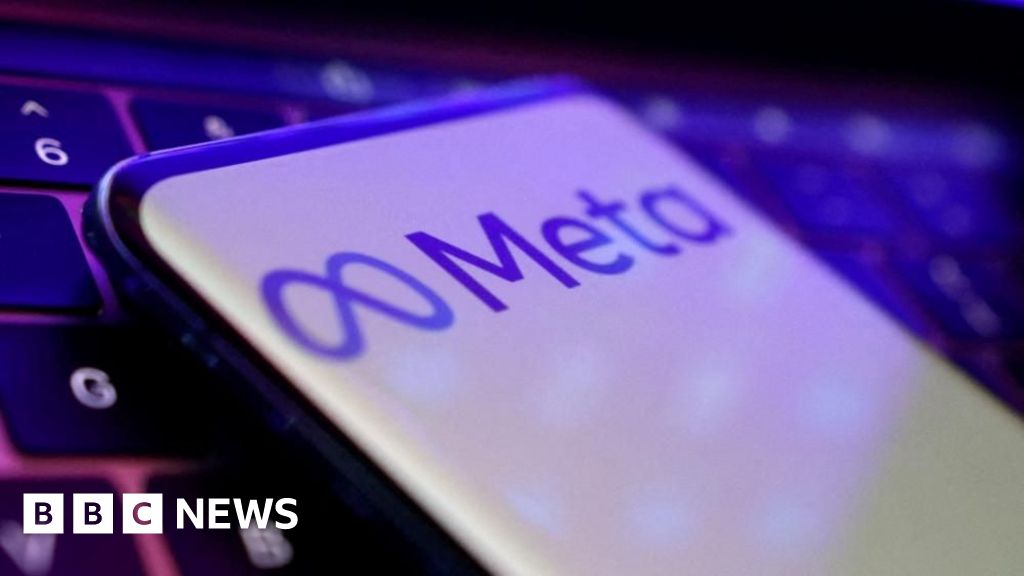
Roblox blocks children from chatting to adult strangers | Ho
Roblox blocks children from chatting to adult strangers 5 days ago Share Save Shiona McCallum Senior Tech Reporter Share Save Getty Images Children will no longer be able to chat to adult strangers on Roblox - one of the world's most popular gaming platforms - as part of an expansion of its safety measures. Mandatory age checks will be introduced for accounts using chat features, starting in December for Australia, New Zealand and the Netherlands, then the rest of the globe from January. Roblox has faced criticism for allowing youngsters to access inappropriate content and communicate with adults, and is being sued over child safety concerns in several US states. The launch also comes just ahead of Australia's social media ban for under-16s - the government is under pressure to include gaming platforms such as Roblox. In March, the chief executive of Roblox, Dave Baszucki, said in a BBC interview that the company went to great lengths to keep children safe. However he also urged parents to be guided by their own instincts. "My first message would be, if you're not comfortable, don't let your kids be on Roblox," he said. "That sounds a little counter-intuitive, but I would always trust parents to make their own decisions." 'Deliver change' Rani Govender, policy manager for child safety online at the NSPCC, said action had been needed because young people had been exposed to "unacceptable risks" on Roblox, "leaving many vulnerable to harm and online abuse." The charity welcomed the platform's latest announcement but called on Roblox to "ensure they deliver change for children in practice and prevent adult perpetrators from targeting and manipulating young users." The platform averaged more than 80 million daily players in 2024, about 40% of them under the age of 13. Roblox The facial checks uses the device's camera to estimate a user's age The UK's Online Safety Act has strict laws for all tech firms specifically aimed at protecting children from online harms. The communications regulator, Ofcom, is responsible for enforcing the act. Anna Lucas, online safety supervision director at Ofcom, said she was pleased about HovicTech Analysis: This insight highlights emerging trends in technology and business innovation, providing unique expert perspectives for readers.
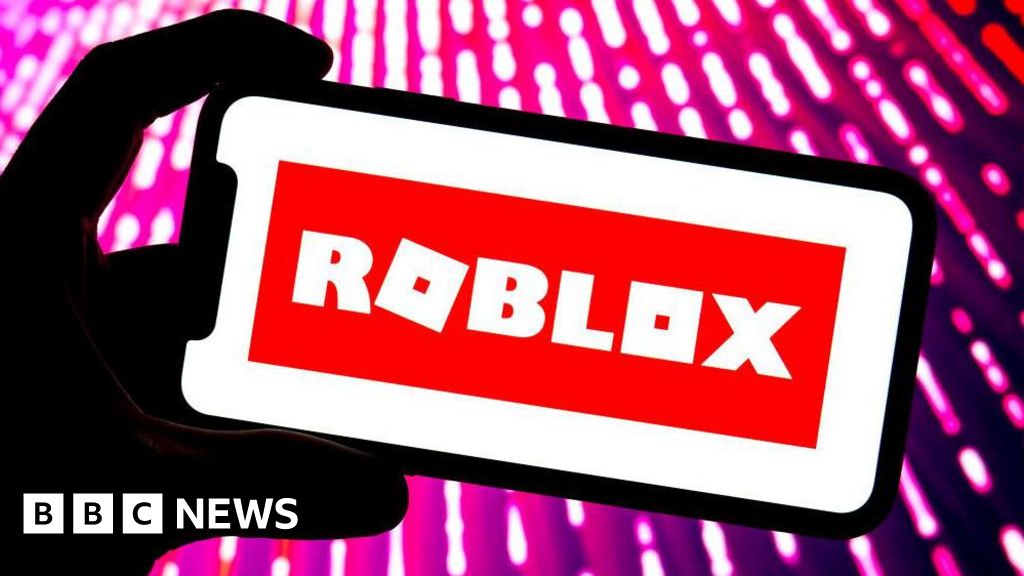
Cloudflare apologises for outage which took down X and ChatG
Cloudflare apologises for outage which took down X and ChatGPT 5 days ago Share Save Liv McMahon Technology reporter Share Save Getty Images A number of high-profile websites, including X and ChatGPT, went down for many people on Tuesday, due to problems affecting major internet infrastructure firm, Cloudflare. Thousands of users began reporting issues with the sites, as well as other services, to outage monitoring site Downdetector shortly after 11:30 GMT. Cloudflare said the "significant outage" occurred after a configuration file designed to handle threat traffic did not work as intended and "triggered a crash" in its software handling traffic for its wider services. "We apologise to our customers and the Internet in general for letting you down today," it said in a statement. "Given the importance of Cloudflare's services, any outage is unacceptable," the company added. It said while the issue had been resolved, some services might still encounter errors as they came back online. A wide range of apps and websites were impacted by the outage. Users reported encountering delays or technical issues when trying to access services such as Grindr, Zoom and Canva. Meanwhile social media platform X (formerly Twitter) was displaying a message on its homepage for some users which said there was a problem with its internal server due to an "error" originating with Cloudflare. ChatGPT's site was also displaying an error message telling some users: "please unblock challenges cloudflare.com to proceed." OpenAI The error message which greeted ChatGPT users What is Cloudflare? HovicTech Analysis: This insight highlights emerging trends in technology and business innovation, providing unique expert perspectives for readers.
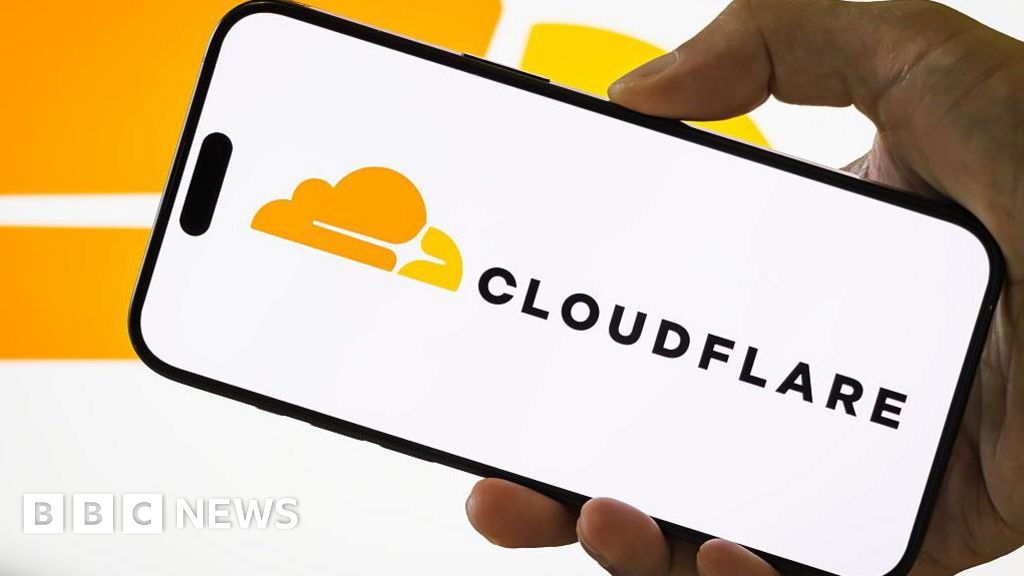
Baby Shark: How a 90-second clip created a $400m business |
Baby Shark: How a 90-second clip created a $400m business 5 days ago Share Save Osmond Chia Business reporter Share Save Getty Images When Kim Min-seok gave the go-ahead in June 2016 to publish a 90-second clip of a children's song, he had no idea what he was unleashing. It became a global phenomenon, clocking up more than 16 billion views - YouTube's most watched video ever. That song was the incredibly catchy Baby Shark. Not only has it captivated toddlers and terrorised adults around the world, it laid the foundations for its creator Pinkfong to become a media business worth hundreds of millions of dollars. “We didn’t expect it to stand out from our other content," Mr Kim, Pinkfong's chief executive, told the BBC from the firm's headquarters in Seoul. "But looking back, it became a major turning point that set the stage for our global journey.” Getty Images Pinkfong chief executive Kim Min-seok at the firm's stock market listing ceremony On Tuesday, that journey took Pinkfong to the South Korean stock market, where its shares rose by more than 9% on their debut, giving it a valuation of more than $400m (£304m). 'We didn't expect a salary' Founded in 2010 as SmartStudy, the firm made digital content for children up to 12 years of age. It had just three employees, including Mr Kim and the firm's chief technology officer, Dongwoo Son. "The office was tiny - even smaller than this," recalled Mr Kim, gesturing to the conference room he was calling from. It was so small "we didn't even expect a salary at the time", he said through a translator. Getty Images The firm was renamed Pinkfong after its cheerful and curious fox character in 2022 Pinkfong went through several major overhauls, including shifting its focus to toddlers. The firm grew to around 100 employees and prioritised simpler, learning-based games and content. "And that's when Baby Shark emerged," Mr Kim said. The firm has been known as The Pinkfong Company since 2022, a name inspired by a cheerful and curious fox that featured in one of its early HovicTech Analysis: This insight highlights emerging trends in technology and business innovation, providing unique expert perspectives for readers.
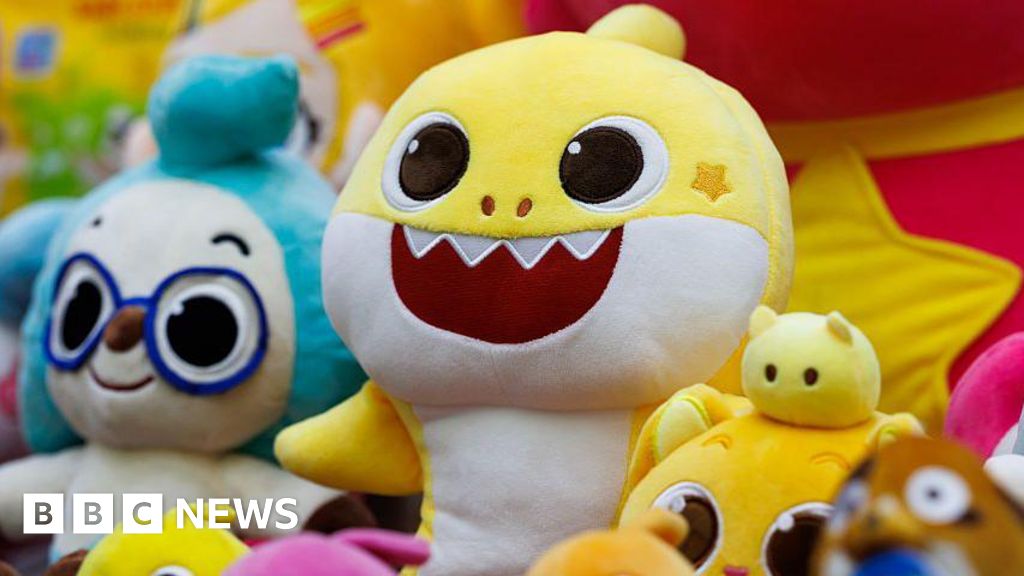
The Fate of Google’s Ad Tech Monopoly Is Now in a Judge’s Ha
Judge Leonie M. Brinkema is on the clock. The federal judge, who sits on the U.S. District Court for the Eastern District of Virginia, heard three hours of closing arguments on Friday from lawyers for the Justice Department and Google over the right way to fix the company’s monopoly in advertising technology. Now the decision is in the judge’s hands, and she said the ruling was likely to come next year. The government has asked the court to force Google to spin off the technology that runs transactions between ad buyers and sellers, known as an ad exchange, and to share some data, among other measures. The company has countered with a narrower proposal. Judge Brinkema, who ruled earlier this year that Google had broken antitrust laws to maintain its dominance in some areas of ad technology, posed only a few questions. Most focused on whether a breakup of Google’s ad technology would take too long to alter the dynamics of a fast-moving industry. “I am concerned about the timing of all this,” she said, noting that a likely appeal of her original ruling by Google could further delay a sale of its assets. A court order that forced the company to change its behavior could take effect quickly, she said. HovicTech Analysis: This insight highlights emerging trends in technology and business innovation, providing unique expert perspectives for readers.

The A.I. Boom Has Found Another Gear. Why Can’t People Shake
It would not be a stretch to describe this period of hyperactive growth in the tech industry as a historic moment. Nvidia, which makes computer chips that are essential to building artificial intelligence, said on Wednesday that its quarterly profit had jumped to nearly $32 billion, up 65 percent from a year earlier and 245 percent from the year before that. Just three weeks ago, Nvidia became the first publicly traded company to be worth $5 trillion. Microsoft, Google, Apple and Amazon are also now valued in the trillions. In their most recent quarters, the four companies reported more than $110 billion in combined profits. “There’s been a lot of talk about an A.I. bubble,” said Jensen Huang, Nvidia’s chief executive, after his company’s blowout quarterly report. “From our vantage point, we see something very different.” HovicTech Analysis: This insight highlights emerging trends in technology and business innovation, providing unique expert perspectives for readers.

To Meld A.I. With Supercomputers, National Labs Are Picking
The moves dovetail with the Trump administration’s efforts to bolster the United States in an A.I. race against China, in part by cutting red tape. “If we move at the old speed of government, we’re going to get left behind,” the energy secretary, Chris Wright, said at a briefing last month on the Oak Ridge announcements. “We’re going to have dozens of partnerships with companies to build facilities at commercial speed.” The strategy emerged from talks between Mr. Wright and the chiefs of many major chip and A.I. companies that started last spring, according to lab officials and company executives. It is just one facet of a flurry of activity in supercomputers, which was the subject of a major conference this week in St. Louis. Nvidia helped galvanize the action last month when Jensen Huang, its chief executive, unveiled plans for seven Department of Energy supercomputers. A day earlier, Oak Ridge announced two AMD-powered machines. Supercomputer veterans said they could not recall announcements of nine major systems in one week. “I don’t think that’s ever happened before,” said Trish Damkroger, a senior vice president at Hewlett Packard Enterprise, which is building five of the new systems. HovicTech Analysis: This insight highlights emerging trends in technology and business innovation, providing unique expert perspectives for readers.

We Asked Roblox’s C.E.O. About Child Safety. It Got Tense. |
Roose: I have sort of a basic question, and forgive me if this betrays my naïveté about Roblox and how the platform works, but like, why have a sort of open-ended text communication feature at all on a game that is very popular with young people? Like, I have a son, he’s too young to play Roblox or any other game, but I can imagine saying as a parent of a slightly older child, like, “I just don’t want my kid playing games that allow them to chat with other people in this way.” There are lots of games out there that don’t have that kind of feature. Why is this so core to the way that Roblox works? Baszucki: Well, I would highlight a couple things. First, there’s enormous benefits for having people be able to communicate, and we think we see those benefits. There’s a lot of kids who find their peeps on Roblox. There are a lot of kids when they’re lonely or isolated actually — I’m not going to use it as an excuse or anything — but I get a lot of calls from famous parents who said, “Look, my kid would be dead if it were not for finding a community on a platform like Roblox to stay connected with.” And I would also say we do take it as an enormous responsibility to design for not the sophisticated parent who goes in and says, “Look, I’m going to turn off who you can chat to and all of that.” We have to design for all parents and think through that. But we do believe we have enormously great technology up and down the stack. We think it’s part of building an experience like this. You know, if you go out there in the gaming space, I think it is very common to support communication. I’m not going to list any other games. And typically, we are way beyond in, I’d say, our innovation level, responsibility level, on both the filtering, on the image sharing, on all of these things. Roose: Is it fair HovicTech Analysis: This insight highlights emerging trends in technology and business innovation, providing unique expert perspectives for readers.

How OpenAI’s Changes Sent Some Users Spiraling | HovicTech I
How OpenAI’s Changes Sent Some Users Spiraling OpenAI adjusted ChatGPT’s settings, which left some users spiraling, according to our reporting. Kashmir Hill, who reports on technology and privacy, describes what the company has done about the users’ troubling reports. By Kashmir Hill, Alexandra Ostasiewicz, Melanie Bencosme, Joey Sendaydiego and James Surdam November 23, 2025 HovicTech Analysis: This insight highlights emerging trends in technology and business innovation, providing unique expert perspectives for readers.

What OpenAI Did When ChatGPT Users Lost Touch With Reality |
It sounds like science fiction: A company turns a dial on a product used by hundreds of millions of people and inadvertently destabilizes some of their minds. But that is essentially what happened at OpenAI this year. One of the first signs came in March. Sam Altman, the chief executive, and other company leaders got an influx of puzzling emails from people who were having incredible conversations with ChatGPT. These people said the company’s A.I. chatbot understood them as no person ever had and was shedding light on mysteries of the universe. Mr. Altman forwarded the messages to a few lieutenants and asked them to look into it. “That got it on our radar as something we should be paying attention to in terms of this new behavior we hadn’t seen before,” said Jason Kwon, OpenAI’s chief strategy officer. It was a warning that something was wrong with the chatbot. For many people, ChatGPT was a better version of Google, able to answer any question under the sun in a comprehensive and humanlike way. OpenAI was continually improving the chatbot’s personality, memory and intelligence. But a series of updates earlier this year that increased usage of ChatGPT made it different. The chatbot wanted to chat. HovicTech Analysis: This insight highlights emerging trends in technology and business innovation, providing unique expert perspectives for readers.

A.I. Toy Bear Speaks of Sex, Knives and Pills, Consumer Grou
Almost as soon as a consumer advocacy group began testing Kumma, an innocent-looking, scarf-wearing A.I.-enabled toy bear, trouble began. Instead of chatting about homework or bedtime or the joys of being loved, testers said the toy sometimes spoke of matches and knives and sexual topics that made adults bolt upright, unsure whether they had heard correctly. A new report by U.S. PIRG Education Fund, a consumer advocacy group, warned that this toy and others on the market raise concerns about child safety. The report described the toys as innocent in appearance but full of unexpected and unsafe chatter. The group examined other A.I.-enabled toys like Grok, a $99 plush rocket with a removable speaker for children ages 3 to 12, and Miko 3, a $189 wheeled robot with an expressive screen and a suite of interactive apps, for children ages 5 to 10. HovicTech Analysis: This insight highlights emerging trends in technology and business innovation, providing unique expert perspectives for readers.

Cryptology Group Held an Election, but Can’t Decrypt the Res
For a group of the world’s top cryptology researchers, it was the kind of election you would expect. It was a secret digital ballot whose final tally could be decoded only by using three keys split among select election trustees. So secure was the annual contest to fill three director and four officer positions that when one trustee lost his cryptographic key to unlock the results, the error made it impossible. The group, the International Association of Cryptologic Research, or I.A.C.R., was left with no choice but to throw out the vote and call a new election. “Regrettably, we have encountered a fatal technical problem that prevents us from concluding the election and accessing the final tally,” the group said in a memo on Friday. “We are deeply sorry for this failure and for the disruption it has caused.” HovicTech Analysis: This insight highlights emerging trends in technology and business innovation, providing unique expert perspectives for readers.

Trump Elevates Once-Fringe Meme Makers to the Mainstream | H
Loosely organized groups of self-described right-wing trolls and “memers” have long posted flattering portraits of President Trump, portraying him as a war hero, a rock star or a muscular comic book vigilante. Their pro-Trump content, for the most part, was not heavily viewed. Mr. Trump is bringing them into the mainstream. Mr. Trump has been sharing memes online since his first term, but artificial intelligence has made it far easier to generate them. In recent months, Mr. Trump has reposted more than 20 A.I.-generated images and videos, some of them produced by members of online communities dedicated to sharing their experiments with the technology. One video he shared on Truth Social showed him doffing a crown like a king. Another depicted him as a fighter pilot dropping what looked like excrement on protesters. “WOWWW!!,” the account behind the fake pilot video posted after Mr. Trump amplified it on Truth Social. “This is incredible.” The New York Times examined the online ecosystem of A.I. aficionados who have organized into communities devoted to praising the president. Hundreds of users, posting anonymously each day, have produced thousands of artificial intelligence-powered videos and images displaying their fondness for the Trump administration and mocking the president’s enemies. Their work is often crude and sometimes racist. HovicTech Analysis: This insight highlights emerging trends in technology and business innovation, providing unique expert perspectives for readers.

Family Affair: Commerce Secretary’s Sons Cash In on A.I. Fre
Kyle Lutnick, the 29-year-old scion of his family’s real estate business, traveled in July to Amarillo, Texas, to walk a dusty tract of land with the head of an artificial intelligence start-up called Fermi America. He was touring the site of a future data center with Toby Neugebauer, a billionaire who is building one of the behemoth facilities that will power the next generation of A.I. Mr. Lutnick’s company was helping raise capital for the center, banking millions in fees in the process. “Polite young man,” Mr. Neugebauer said in an interview. A month later, Kyle’s father, Howard Lutnick, was photographed with Mr. Neugebauer at an event near the White House that celebrated Fermi’s partnership with a South Korean company on the same data center project. This sequence of events — a son making money on a project his father is boosting as a federal official — has come up repeatedly since President Trump tapped Howard Lutnick to head the Commerce Department, according to an investigation by The New York Times. HovicTech Analysis: This insight highlights emerging trends in technology and business innovation, providing unique expert perspectives for readers.

Yann LeCun, a Pioneering A.I. Scientist, Leaves Meta | Hovic
Yann LeCun, a pioneering scientist who led Meta’s artificial intelligence research efforts for more than a decade, is leaving the company to create his own start-up, he said on Wednesday. Dr. LeCun’s departure follows a shake-up at Meta in its A.I. efforts. In June, the company invested $14.9 billion in the A.I. start-up ScaleAI and made that company’s chief executive, Alexandr Wang, its new chief A.I. officer. Weeks later, Mr. Wang named Shengjia Zhao, a researcher whom Meta hired from rival OpenAI, as its chief scientist, the same title as Dr. LeCun’s. His exit ends an era for Meta’s A.I. research division, FAIR, where Dr. LeCun had served as a founding director. His start-up will focus on advanced machine intelligence, a kind of A.I. he researched at Meta and as a professor at New York University. Meta will work with the new company, Dr. LeCun said. “The impact of FAIR on the company, on the field of A.I., on the tech community and on the wider world has been spectacular,” Dr. LeCun, 65, wrote in a social media post. Advanced machine intelligence “will have far-ranging applications in many sectors of the economy, some of which overlap with Meta’s commercial interests, but many of which do not.” HovicTech Analysis: This insight highlights emerging trends in technology and business innovation, providing unique expert perspectives for readers.

Nvidia Earnings Show Profit Jumped 65% to $31.9 Billion | Ho
Just three weeks ago, Nvidia became the first publicly traded company to be worth more than $5 trillion thanks to the cutting-edge computer chips it makes for artificial intelligence. On Wednesday, Nvidia provided a reminder of just how much the world craves those chips. The company said that in its most recent quarter, its profit was $31.9 billion, up 65 percent from a year earlier and 245 percent from the year before that. Among the tech industry’s giants, only Google’s parent company, Alphabet, made more money in the same quarter. Nvidia controls about 90 percent of the market for the chips used in A.I. projects, and its financial performance has become a bellwether for the tech industry, which is investing trillions of dollars in big data centers all over the world. Nvidia’s eye-popping profit could be enough to calm nerves on Wall Street, where there are increasing concerns that lavish spending is getting way ahead of demand for the products and services that Silicon Valley’s engineers are building. HovicTech Analysis: This insight highlights emerging trends in technology and business innovation, providing unique expert perspectives for readers.

Saudi Arabia Backs Elon Musk’s xAI With Data Center Deal | H
Elon Musk has been hunting for partners to grow his artificial intelligence start-up xAI as it tries to keep pace with OpenAI, Anthropic and Google. Crown Prince Mohammed bin Salman of Saudi Arabia has been trying to diversify his oil-rich kingdom’s economy by making it a global hub for tech and artificial intelligence. On Wednesday, their intersecting interests led to a deal. Mr. Musk’s xAI, which makes the Grok chatbot, agreed to work with the state-backed Saudi company Humain to build a new data center in the Persian Gulf kingdom. The project is set to consume as much as 500 megawatts of electricity, which would make it xAI’s biggest data center outside the United States. Humain and xAI did not disclose the value of the deal. HovicTech Analysis: This insight highlights emerging trends in technology and business innovation, providing unique expert perspectives for readers.

Larry Summers Resigns From OpenAI’s Board | HovicTech Insigh
Lawrence H. Summers, the former Treasury secretary, will step down from the board of the artificial intelligence start-up OpenAI, he and the company said on Wednesday, after Congress released emails last week that showed Mr. Summers had regularly corresponded with the disgraced financier Jeffrey Epstein. “In line with my announcement to step away from my public commitments, I have also decided to resign from the board of OpenAI,” Mr. Summers, 70, said in a statement. “I am grateful for the opportunity to have served, excited about the potential of the company and look forward to following their progress.” In a statement, OpenAI’s board of directors confirmed Mr. Summers’s resignation. “We appreciate his many contributions and the perspective he brought to the board,” it said. Mr. Summers’s exit from OpenAI is part of the widening fallout of those who were in the orbit of Mr. Epstein, who authorities said killed himself in prison in 2019 while awaiting trial for sex trafficking charges. President Trump and the filmmaker Woody Allen were among those mentioned in the more than 20,000 Epstein estate emails made public by lawmakers this month. HovicTech Analysis: This insight highlights emerging trends in technology and business innovation, providing unique expert perspectives for readers.

Netherlands Hands Back Control of Chinese-Owned Chipmaker Ne
The Dutch government said on Wednesday that it was handing back control of the chipmaker Nexperia to its Chinese parent company, in an effort to ease tensions that had flared after the Netherlands was caught in a tussle between Washington and Beijing over electronics supply chains. Dutch officials made the decision after consulting with the European and international partners and “constructive meetings” with the Chinese authorities, the Dutch economic affairs minister, Vincent Karremans, said in a social media post. The Dutch government had taken over Nexperia, which is owned by the Chinese company Wingtech, on Sept. 30, after the United States expanded a trade blacklist that meant Nexperia would face strict controls on its operations. The Netherlands said then that company decisions would be determined by Mr. Karremans, and that it had taken that step in an effort to prevent Nexperia’s products from becoming unavailable in an emergency. Nexperia has headquarters in the Dutch city of Nijmegen and employs thousands of people across Europe, the United States and Asia. It operates a supply chain that spans the globe, designing and manufacturing older types of chips used in cars and electronics. HovicTech Analysis: This insight highlights emerging trends in technology and business innovation, providing unique expert perspectives for readers.


0 Comments